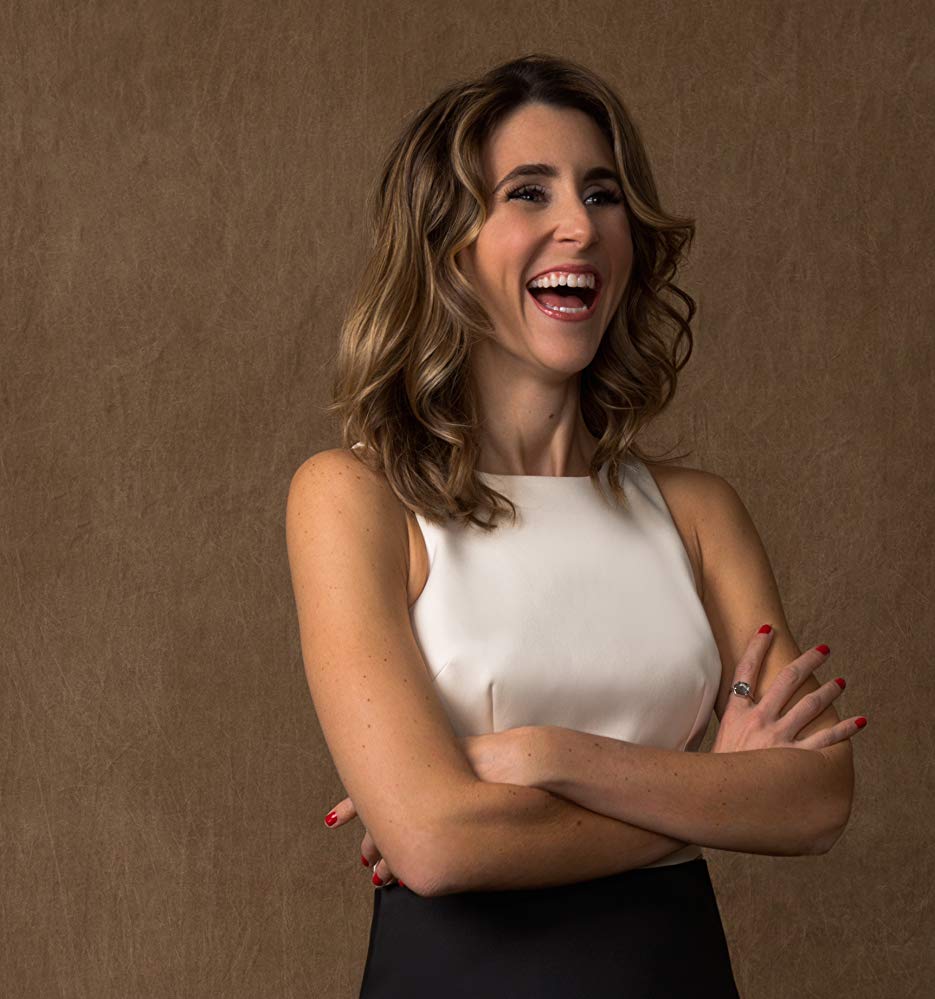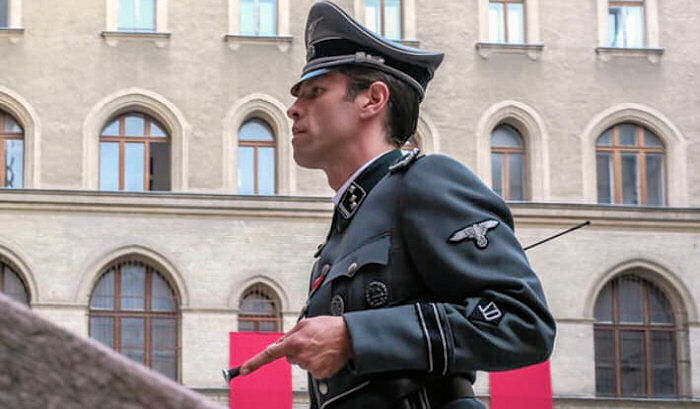Whistler always raises the bar with the exceptional films that premiere there. I was delighted when a very unique spy thriller was announced to screen there. The film is called Liberté: A Call to Spy and is based on true events. The story follows three women during WWII as they work to undermine the Nazi regime in war-torn France. They are recruited by Winston Churchill’s Special Operations Executive (SOE) agency and they become the secret weapons as unsuspecting spies and ultimately playing an integral role in winning the war.
This film is an incredible achievement for women in film with Stana Katic as Verra Atkins, Radhika Atpe portraying Noor Inayat Khan and Sarah Megan Thomas playing the role of Virginia Hall and writing and producing the film. Lydia Dean Pilcher directs the film brilliantly. The women that this story is based on are truly incredible and heroic for their sacrifice and contributions in stopping the war. They come from polar opposite backgrounds but unite for a greater cause to become Spymistresses and change the course of history.
Sarah Megan Thomas wrote, produced and acted in it. I had the great privilege of speaking with her in depth about the making of the film.
“You wear many hats in the making of this film. Do you have a personal connection to this story?”
“Absolutely, I’ve always enjoyed telling female empowerment stories that also appeal to a male demographic in this commercial genre we’ve never seen before. I knew I wanted to tell a spy drama, my previous film was Equity, a Wall Street drama with Sony Classics. When I started doing research about these women in Churchill’s secret army, I discovered they put their lives on the line by spying as amateurs for freedom. I became obsessed with their stories and how heroic they were. I was actually surprised nobody had made a movie about them yet.”
“Did you learn about their stories through reading a novel?”
“It was not through a novel but literally through the research of who the women were and I was able to choose any one of their SOE (Special Operations Executive) files, that are available to anyone in the UK. When I was looking at the women who worked as spies in France, there were 39 of them. Anyone one of them could’ve had a biopic but I became very interested in 3 of them; Virginia Hall, Verra Atkins and Noor Inayat Khan because they were first in their field. The first female wireless spy, the first female field agent spy but also because they were women from different religions, different backgrounds and yet they united to resist. I hope that this allows for a larger/international story about an individual’s courage in the face of evil.”
“Throughout your research and writing the screenplay, how well do you feel you got to know the real women?”
“Very well, I was really lucky that I was able to speak to many of the living relatives of Virginia Hall, which is the character that I play. Those were fascinating phone calls because you learn little tidbits about their personalities that aren’t in a file. As an actress playing a historic role, at some point you have to make it your own to succeed. I very much felt a personal connection to Virginia Hall’s courage and ability to keep pushing when people say no. She was a disabled woman with a wooden leg that shot her foot off in a hunting accident at 27 and almost died. She wanted to be a diplomat but the US said no to her because she was a woman and disabled. Instead, the British government hired her as a spy because she was inconspicuous and an American. America wasn’t in the war yet so they sent her in as a post reporter. She became the spy the Nazi’s dubbed ‘the most dangerous woman of all’ and the first woman to work for the CIA after the war. I found a connection with her because if someone told her no, she’d go another way and find another door; I love that about her. The film business is similar in the sense that it’s very difficult for a woman in this business and people say no to you all the time.”
“You felt most drawn to Virginia Hall’s character?”
“I was most drawn to her because I was playing her as an actress but I was very drawn to the other characters as well. They’re very compelling and play very well. Stana Katic (Castle) plays Vera Atkins. Her character was inspiring to me because Vera Atkins was a Romanian Jew that had to hide her religion because of anti-Semitism in London at the time to work as a Spymistress for the SOE. She was the recruiter of these women. The third character was Noor Inayat Khan who is a Muslim Indian pacifist that had to overcome her feelings about violence to be part of the war effort. She’s played by Radhika Apte, who’s currently one of the biggest stars in India.”
“When you were putting the cast together, how difficult was it to find actors that could fit the ethnic backgrounds of the characters?”
“That’s a good question because this is an international film, it took a great effort. We had an amazing casting director, Heidi Levitt who is out of LA and I think Canadian. She made a huge effort in pairing up with a casting company in the UK. We auditioned actors that were German, British, Indian, Canadian, American, so it’s quite an international cast. I think that lends to the experience.”
“When did you first start putting the wheels in motion for this production?”
“I started right after Equity had finished and was being released by Sony. It took about a year to get a first draft… then came the fundraising, which is always the challenge.”

“I know what it’s like to try and raise financing in Canada but what is it like in the US?”
“I was on a panel the other day here in Whistler about financing. I learned about how amazing the Canadian government is with incredible grants of significant amounts of money. In the US, it’s not the case. We did have a grant from New York Women in Film and Television but these are small size grants. It’s largely equity, individual investors and tax credits. We shot in Pennsylvania and Budapest which both have tax credits but it’s tough. We had used Pennsylvania as London because Philadelphia is where the British first came and there are so many historic places that were kept intact, so it worked really nicely. For Budapest, the landscape is very conducive to 1940’s France, even more so than France.”
“Is this the first period piece you’ve done?”
“It is.”
“What types of challenges did that bring?”
“None, not at all (laughter). Oh my… making a period piece, every department had challenges and every department went above and beyond. Our costume designer, Vanessa Porter had ordered WWII costumes from Poland, from LA, from second hand shops, everywhere. Our production designer, Kim Jennings made a small budget go a long way. With a smaller budget period piece, you have to find locations that are ready to shoot because it’s too costly to build sets. One of the locations in Pennsylvania that we shot in was one of the homes of the family that inspired The Philadelphia Story. It was a completely period furnished home/museum that’s a replica of the mansion in Scotland where these spies historically trained. We were able to shoot there for 11-12 days. My mom lives in Philadelphia and actually found the place so I can’t take credit for that one. (laughter) Thanks mom.”
“Has the film premiered anywhere else prior to Whistler?”
“The film has premiered in Edinburgh Scotland during the 75th commemoration of D-Day. After its Whistler premiere, it will go to the US.”
“Do you have a distributor attached to the film?”
“We have fielded offers on board but have not finalized anything yet.”
“Was some of your motivation for this film to put women in stronger/larger roles due to the industry’s lack of support for female driven films?”
“Thank you for asking that because one of my missions as a filmmaker has always been to tell female driven stories that are untold. Yes is the short answer but I love spy films/James Bond films, however with most spy films when women are the lead, it’s largely a romance. I like romances too but I was very inspired to show how good women are at their jobs, much like my last film about the women of Wall Street. I want men and women to go to the theatres and enjoy this film and the heroic individuals for what they’re doing. These could’ve been men and I’m so inspired just to see their stories.”
I think that it’s important to note that there’s a timeliness to this film; yes it takes place in WWII but it’s not just a war period film it’s very timely with the issues going on in the world. One of the things I hope people will walk away with is, first and foremost we make movies to entertain but I also like films that are thought provoking that promote conversations after the film and no matter what happens in the world, ask yourself what you would do to make change. These women did not have to fight, they didn’t have to do anything but they put their lives on the line for a larger cause outside of themselves for an international cause. That in itself is so admirable.”
Women are remarkable and many times do not get enough credit for their contributions to history. Behind every great man is a great woman may one day read, behind every great woman is an incredibly struggle and admirable story.

